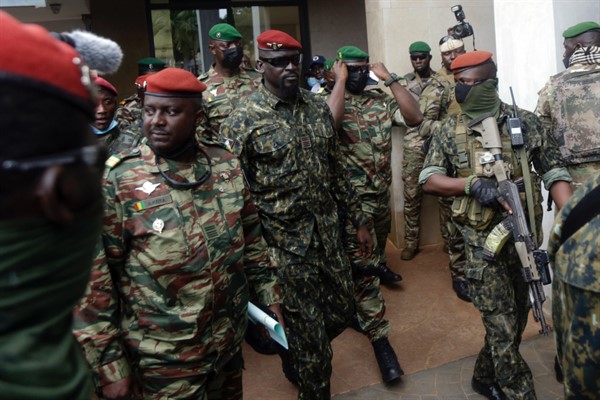For the past decade and more, the U.S. and other international actors have prioritized a narrowly defined form of stability over democratic accountability in their diplomatic, development and security engagement in West Africa. The only problem is that this approach is not working. West African countries enjoy neither the stability their international partners seek, nor the democracy their citizens desire.
Why, then, is the United States and the rest of the “international community” unwilling or unable to make a course correction in their West Africa engagement?
To begin to answer that question, a bit of historical background is necessary. Beginning in the 1980s, African countries ranging from Zimbabwe and Namibia to South Africa and Senegal experienced discernible if fitful movements toward democratic rule. Arguably nowhere was this wind of change more acutely felt than in West Africa in the 1990s, where numerous countries—including Cape Verde, Mali, Guinea, Guinea-Bissau, Cote d’Ivoire, Ghana, Benin, Nigeria and Niger—held multiparty elections to replace military regimes or long-serving leaders elected in single-party contests, with varying degrees of success.

